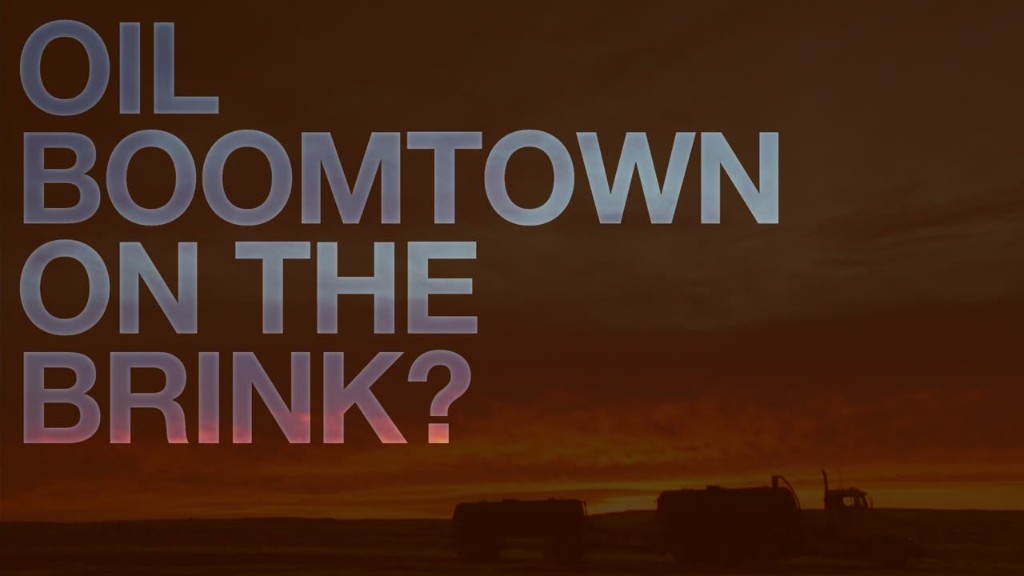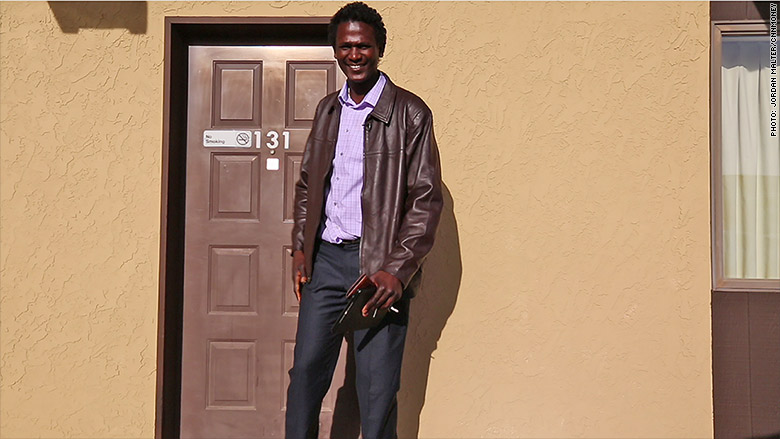
Ten years ago there were three black people working in North Dakota's oil fields. Not three percent, just three people.
Now there are over 600.
Many of them came for jobs working in the Bakken oil fields, and settled in towns like Williston, N.D.
Like the state itself, most people in this oil boomtown are white. But it's impossible not to notice the number of minorities -- particularly blacks -- among the huge influx of oil workers that's descended upon the region over the last few years. And while the recent fall in oil prices has called the longevity of the boom into question, at least some of these workers are here to stay.
Oil boomtown: 'We could see 20,000 layoffs by June'
"I don't want to go home," said Elias Kogo a 35-year-old former marathon runner originally from Kenya who'd been working as a fracking mechanic here for the last three years. "I came from a very poor family, and I want to give my kids a better life."

Kogo was recently laid off from his six-figure-a-year job -- a victim of falling oil prices -- but was busy looking for another. He was confident he'd find one, which would enable him to continue sending money back to his wife and four kids in Albuquerque, N.M.
He said he often sees other Africans around town. Sometimes they stop him and ask for advice on how to get a job.
"A lot of them are farm people, and they come here thinking they can go into the fields and lift stuff," he said. "But it's not really like that, so they end up working at Wal-Mart."
It's hard to estimate how many foreigners are in this part of North Dakota. But the number of blacks and Hispanics in the state rose by over 50% between 2010 and 2013, according to North Dakota Department of Commerce. And that figure likely misses all the workers that are here on a temporary basis, living in hotel rooms, RV's, or company provided "man camps," said Kevin Iverson, manager of North Dakota's Census Office.
The number of blacks working in the state, for example, is actually twice as many as report living there, he said.
"People come up to Minnesota, then drift over because the job market is stronger here," he said.
In pictures: Oil boomtown on the brink of bust?
Something similar happened to John Roberts, originally from Liberia. He was working at a food processing plant in Iowa before moving to North Dakota in 2014. He found work driving a van for oil workers, though recently lost that job as a result of the drilling slowdown. He wasn't moving either.
"I need a job right now, and I'm hoping people find me fit and qualified," he said while looking for work at Williston's employment center.
Thomas Sample drives a truck hauling water, sand and other materials for the oil industry. An African American originally from Brooklyn, N.Y., he said he loves meeting the Africans in town, and also offers advice for getting work.

"I tell them, 'you've got an accent, that's intriguing to people, expand on it,'" said Sample. "They're well dressed, educated -- they're a real positive here."
It's not only Africans who have moved to Williston.
Chris Neiffer, who moved here with her family from Montana two years ago, said that in addition to West Africa she's met people from Brazil, Peru, Australia and Germany.
She likes that her grand kids get to interact with different cultures without having to move to a big city.
"You want to meet people from all over the world, this is the place to do it," she said.


